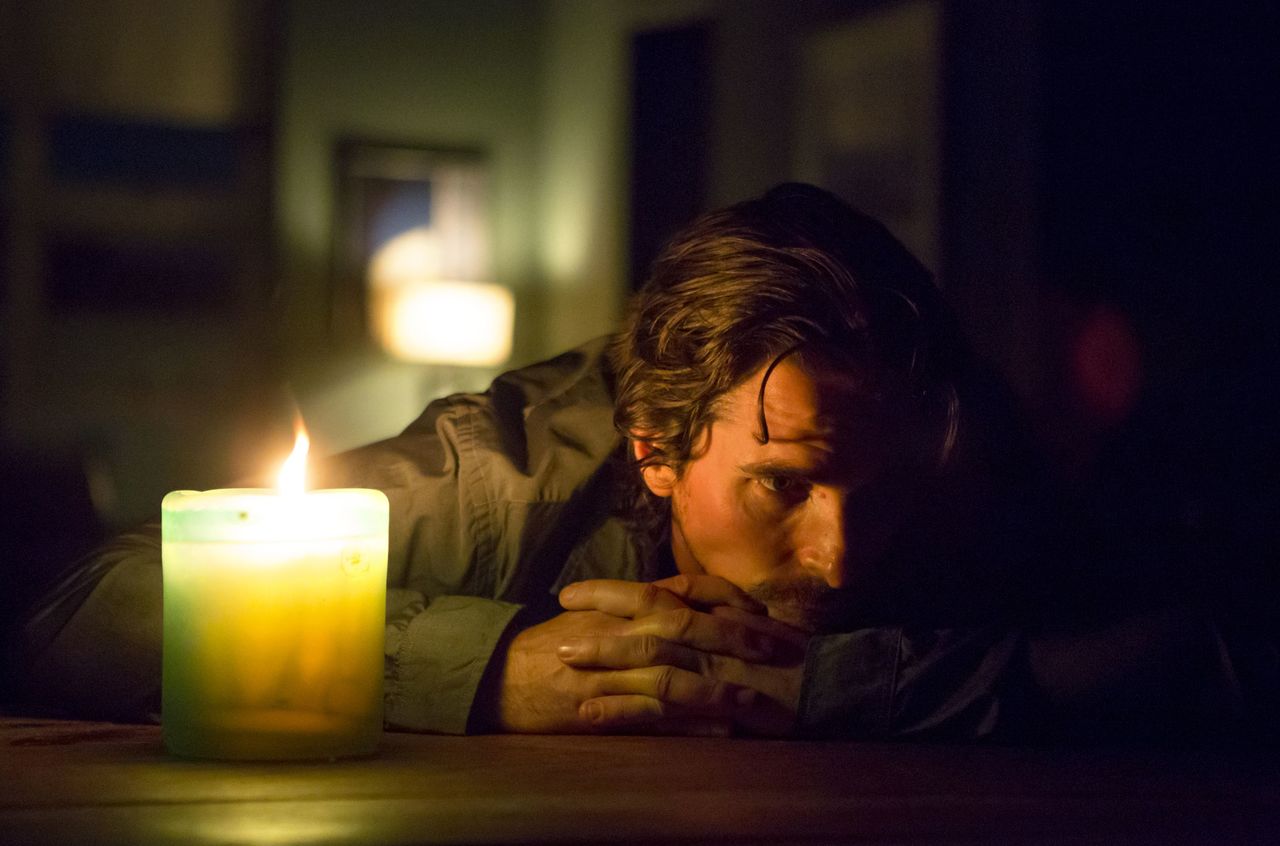One of the many beautiful women in the screenwriter’s life turns to him and says, “It’s time for you to tell me something interesting.”
I suppose this line in Terrence Malick’s “Knight of Cups” is included as a measure of the screenwriter’s empty world, his material success in Hollywood having come at the cost of spiritual blankness. But for a moment, the viewer might quicken to the possibility that something is going to happen in this movie — that the hero might say something definitive, or begin a story, or blurt out a need to visit the men’s room.
But he will not, and the moment passes, as all the moments in the film pass — like sands through the hourglass, or tears in rain, or whatever other greeting-card profundity you want to offer.
His name is Rick. We know this because someone asks him what his name is, and he says, “Rick.”
It’s one of the few fragments of dialogue Christian Bale actually delivers on screen, the majority of the film’s words being spoken by a dozen or so different people in voiceover (including, from an old recording, John Gielgud narrating “The Pilgrim’s Progress”).
It’s also one of the few times someone is referred to by name, because the film’s writer-director, Terrence Malick, is way beyond the primitive business of giving characters names, or inventing story lines, or even mounting a scene that has a beginning, middle and end. Malick is reaching for the ineffable, and so is Rick.
The film goes for 118 minutes, divided into chapters with headings from the Tarot. Rick wanders through Los Angeles, attends Hollywood parties, has affairs with young women who like to wade in the surf (they include Imogen Poots, Frieda Pinto and Teresa Palmer).
He has an encounter with his ex-wife (Cate Blanchett) who also wades in the surf, and has an apparently serious relationship with a married woman (Natalie Portman) with whom he wades in the surf.
Malick portrays Hollywood parties and fleeting affairs as no fun at all, in case you were wondering. Rick also has an unstable brother (Wes Bentley) and a broken father (Brian Dennehy), the family evidently still torn up over the suicide of another brother.
To type these descriptive phrases is to suggest a more concrete experience than the film itself offers. Malick breaks up these scenes with shots of the desert and ocean and sky, as though to remind us of the relative unimportance of narrative.
Malick’s previous three films have worked in this mode with progressively dire results: “The New World” (2005) swooningly informed us that the discovery of America might not have been good for indigenous people; “The Tree of Life” (2011) combined a gorgeous evocation of mid-century childhood with dorm-room musings on philosophy and the innate niceness of dinosaurs; “To the Wonder” (2012) noodled its way up its own drain spout in contemplation of a vague romance.
Given my own increasingly discouraged viewing of Malick’s films, I was somewhat surprised to find the opening act of “Knight of Cups” fairly enthralling. With cinematographer Emmanuel Lubezki (who just copped his third straight Oscar, for “The Revenant”), Malick makes those desert stones and ocean waves seem essential, and finds beauty in the rooftops of Los Angeles at twilight. There are heart-stopping details, like the glimpse of sand in Natalie Portman’s hair after one of the beach dunkings.
But the more it goes on, the more “Knight of Cups” flounders. Actors look like they’re trying to make something happen, to the extent that we are allowed to watch them work.
Malick brings in author Peter Matthiessen to talk zen and perhaps supply a notion of what the film is about. “I only teach one thing,” Matthiessen says. “This moment.”
Malick is utterly sincere in his desire to capture “this moment” in his films; he wants to grab the fleeting gestures, to catch the wind. But he can’t help bringing in ideas, and those fall flat.
Late in the film, in a typical scrap of footage, we watch a young woman swimming in a Hollywood pool. She drifts out of the shot, or the camera drifts away from her, and we are left gazing at the water’s surface, its ripples, the way the light moves. The woman, apparently meant to be important in Rick’s life, barely comes to life as an attractive cipher. But the water sure looks pretty.
“Knight of Cups” (2 stars)
A typically fragmented film from Terrence Malick, about a screenwriter (Christian Bale) in a spiritual crisis. Malick makes the Hollywood party scene look like no fun at all, as a parade of beautiful women (Cate Blanchett and Natalie Portman among them) spin through the hero’s empty life. It’s awesome to look at, even when Malick’s ideas fall flat.
Rating: R, for nudity, subject matter
Showing:
Talk to us
> Give us your news tips.
> Send us a letter to the editor.
> More Herald contact information.

























